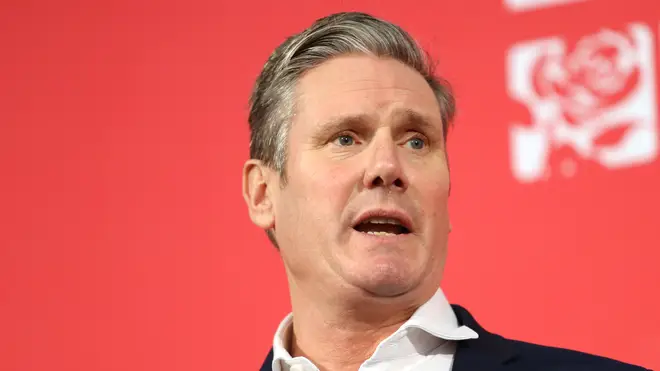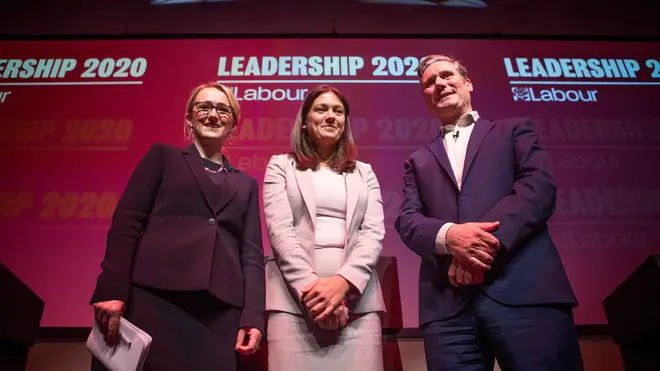
Simon Marks 3pm - 7pm
4 April 2020, 10:52

Sir Keir Starmer has been elected as the new leader of the Labour Party.
After a contest that lasted for months, the shadow Brexit secretary and former director of public prosecutions emerged as Jeremy Corbyn’s successor.
Angela Rayner was announced as the party's new deputy leader.
Sir Keir and Ms Rayner won with 56.2% and 52.6% of the vote respectively.
It’s the honour and privilege of my life to be elected as Leader of the Labour Party.
— keir_starmer (@Keir_Starmer) April 4, 2020
I will lead this great party into a new era, with confidence and hope, so that when the time comes, we can serve our country again – in government. pic.twitter.com/F4X088FTYY
Sir Keir said: "It is the honour and the privilege of my life to be elected as leader of the Labour Party. It comes at a moment like none other in our lifetime.
“Coronavirus has brought normal life to a halt. Our cities, our towns and our villages are silent, our roads deserted. Public life has all but come to a standstill and we're missing each other. “It reminds us of what really matters, our family, our friends, our relationships. The love we have for one another. Our health.
“Under my leadership we will engage constructively with the Government, not opposition for opposition's sake. Not scoring party political points or making impossible demands. But with the courage to support where that's the right thing to do.
“But we will test the arguments that are put forward. We will shine a torch on critical issues and where we see mistakes or faltering government or things not happening as quickly as they should we’ll challenge that and call that out.
“Our purpose when we do that is the same as the Government's, to save lives and to protect our country, a shared purpose.
He won beating Rebecca Long-Bailey and Lisa Nandy to the top spot.
Sir Keir led the race from the start, winning the backing of 89 members of the parliamentary party in the first round of the contest, before securing the support of more than a dozen affiliated organisations in the second stage.
Mr Corbyn announced that he would quit as Labour leader in December, after the party suffered its worst general election defeat since 1935 - following years of faction in-fighting, accusations of institutional anti-Semitism and bitter divisions over Brexit.

The race to replace him began in January, but has been overshadowed by the coronavirus crisis.
A planned "special conference" to announce the results had to be scrapped as the pandemic took hold in Britain.
Mr Starmer will assume his role immediately, leaving Mr Corbyn to return to the backbenches unless the winner wants him in their shadow cabinet.
The MP for Holborn and St Pancras was the bookies' favourite to win the leadership, despite being viewed as more of a centrist than his main rival, Ms Long-Bailey.
But his campaign saw him play up his left-wing credentials, highlighting his work as a lawyer supporting trade unions and poll tax protesters, and saying the party should not "oversteer" to the right in the wake of the election defeat.
Mr Starmer was instrumental in getting the party to back a second Brexit referendum - although he acknowledged that the scale of the election defeat meant the issue was now settled.
However, he has refused to rule out campaigning for Britain to return to the European Union in the long term.
His policy pledges include raising income tax for the top 5 per cent of earners, campaigning for EU freedom of movement to continue and to push for "common ownership" of public services such as mail, rail and energy.
The 57-year-old, who lost his mother-in-law during the leadership race, has also vowed to introduce a prevention of military intervention act if he becomes PM to ensure Britain could only go to war if the Commons agreed.
Those eligible to vote had until midday on Thursday to make their choice before the new leader was revealed.
The ballot opened on February 21, with voting papers sent out to party members, members of affiliated trade unions and groups and 14,700 "registered supporters" who paid £25 to take part on a one-off basis.